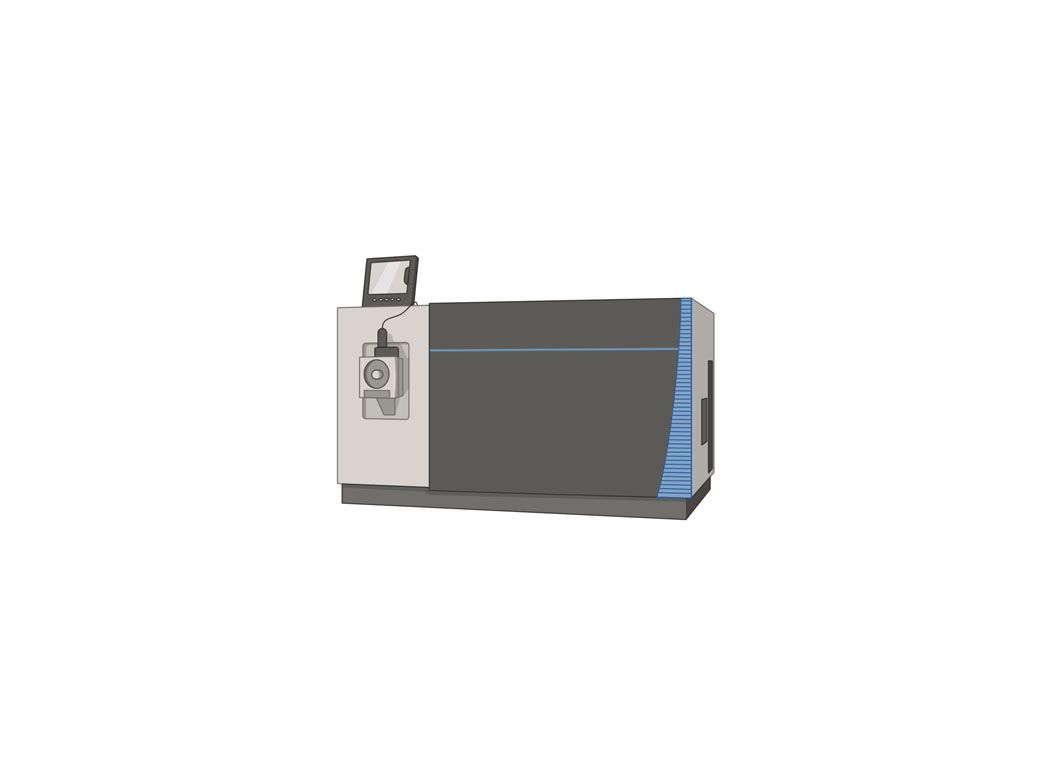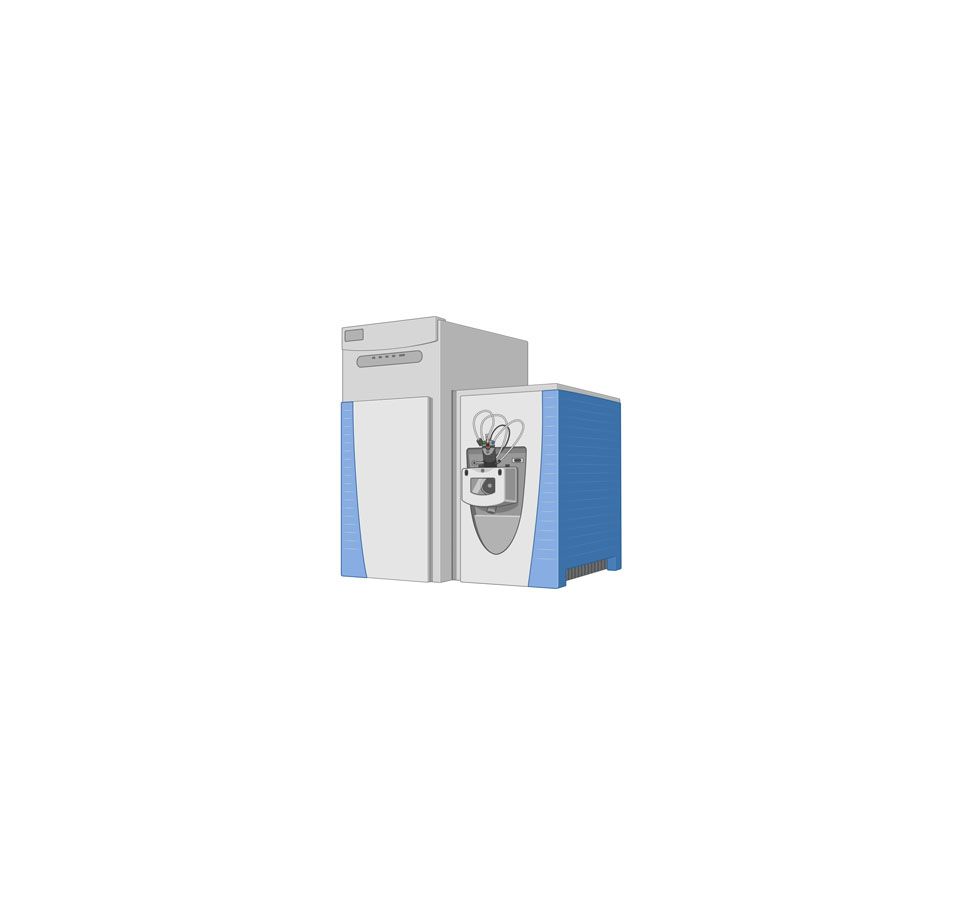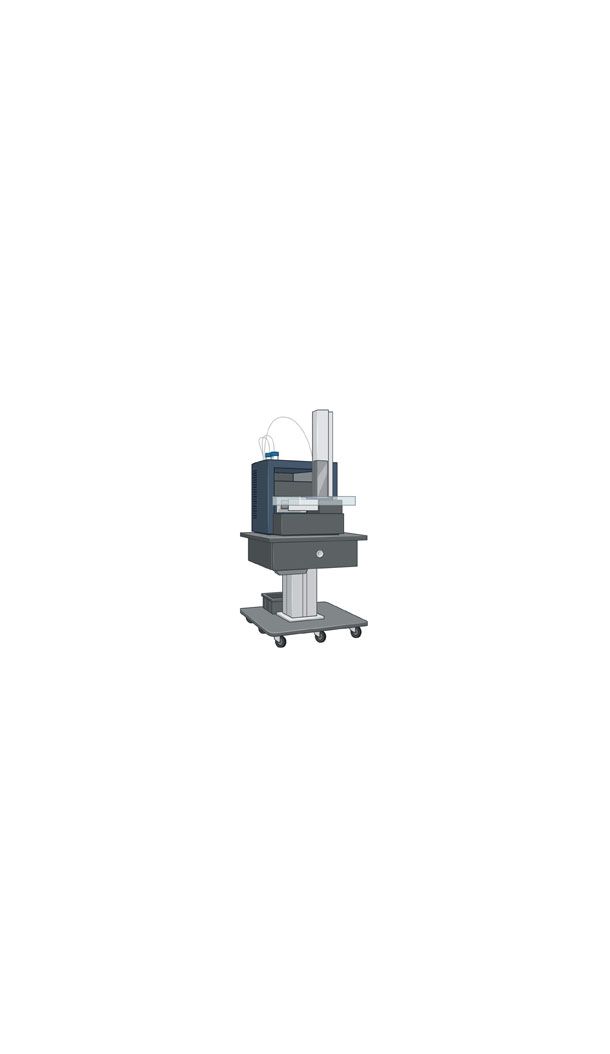Established in 2010, the Core Facility for Medical Proteomics (CFMP) supports researchers from the University Hospital Tübingen, the University of Tübingen, national and international institutes. We specialize in delivering accurate and reproducible proteomic analyses, providing tailored solutions for both qualitative and quantitative studies. With state-of-the-art mass spectrometry technology and a dedicated team, we help transform research hypotheses into meaningful biological insights.
We established quality assurance from sample acquisition to final data delivery. Our State-of-the-art equipment is maintained with frequent calibration and quality control. Together with QBIC, we further offer professional data storage and management in compliance with FAIR principles.
About us
News
Successful acquisition of a 2.2 million euro grant for the Core Facility for Medical Proteomics.
A joint effort led by Professor Marius Ueffing, Director of the Institute for Ophthalmic Research in Tübingen, and Dr. Karsten Boldt, Head of the Core Facility for Medical Proteomics—with key partners including the Department of Pathology and Neuropathology led by Professor Stephan Singer, the Department of Neurology and Neurodegenerative Diseases led by Professor Thomas Gasser, PD Dr. Johannes Gloeckner from the DZNE, the Anaesthesiology and Intensive Care Department led by Professor Peter Rosenberger, and the Experimental Pharmacology unit led by Professor Robert Lukowski—has secured a €2.2 million grant from the German Research Foundation (DFG). This funding has enabled the acquisition of two state-of-the-art mass spectrometers, significantly enhancing LC-MS-based capabilities for advanced tissue proteomics and medical research. Furthermore, through strategic collaboration with the Department of Pathology and Neuropathology, the Core Facility is integrating proteomics into medical research to pioneer innovative approaches and transformative discoveries. With an impressive track record of publications in journals such as Nature and PNAS, the facility continues to drive breakthroughs in understanding disease mechanisms and advancing personalized medicine research through collaborative scientific partnerships
Services


Consulting
Consultancy to ensure your proteomics approach aligns with your scientific goals.
Expert advice on experimental design to optimize your workflows.

Measurement
Optimized workflows for a variety of sample types
Qualitative Proteomics:
Organellar Proteomics
Deep Proteome Profiling
Post-Translational Modifications
Quantitative Proteomics:
Proteome Quantification
Targeted Proteomics
Body Fluid Analysis
Interactomics:
Mapping protein-protein interactions and networks by:
Proximity Labeling
Innovate methods to study spatial protein interactions.
Affinity Purifitcation
Specialized techniques to isolate protein complexes.
Detection of Alterations in Complexes
Advanced tools to monitor dynamic protein interactions.

Data Analysis
Comprehensive data analysis, including statistics and data integration.
Further analyses and data storage options are available via QBiC.

Training
Participate in workshops tailored to your needs, including hands-on sessions with our state-of-the-art instrumentation and sample preparation techniques.
Contact us today to learn more about our training programs and workshops!
Team

Dr. Karsten Boldt
Head of Core Facility Medical Proteomics

Dr. Mohamed Ali Jarboui
Project Design and Data Analytics

Franziska Klose, Dipl. Ing
Technical Head

Katrin Dahlke
Technician Project Management

Nicola Horn, M.Sc
Technician
Advisory Board
- Prof. Dr. Marius Ueffing
- Prof. Dr. Sven Nahnsen
- Prof. Dr. Stephan Singer
- Prof. Dr. Michael Schindler
- Dr. Daniel Merk
Bridging Proteomics & Clinical Pathology for Precision Medicine:
We collaborate with the Department of General and Molecular Pathology and Pathological Anatomy to harness the power of proteomics for biomarker discovery, patient stratification, and precision diagnostics. By integrating advanced mass spectrometry workflows with clinical expertise, we identify molecular signatures that enhance diagnosis and prognosis—driving personalized medicine and evidence-based clinical decision-making.

Prof. Dr. Stephan Singer
Tissue Proteomics for Translational Pathology
Equipment
Sample Handling and Preparation
Efficient protein extraction is crucial in proteomics research to ensure high-quality and reproducible results. Both of our systems enhance protein extraction efficiency and reproducibility, facilitating detailed proteomic studies such as protein identification, quantification, interaction, and modification analysis.

PBI Barocycler® NEP 2320 PCT SPS
Utilizes Pressure Cycling Technology (PCT) to enhance protein extraction and solubilization by applying hydrostatic pressure. This method improves accessibility to proteins and their modifications, leading to more precise proteome analysis.

Precellys Homogenizer
Employs bead-beating technology for high-throughput tissue homogenization, ensuring rapid and uniform sample disruption. This technique preserves protein integrity and maximizes yield, making it ideal for complex biological samples in proteomics applications.
MS Instruments
Mass spectrometry (MS) is a fundamental technology in proteomics, enabling precise protein identification, quantification, and characterization. Advanced MS systems leverage high resolution, sensitivity, and speed to analyze complex biological samples with exceptional accuracy.

Bruker timsTOF Ultra 2
Incorporates Trapped Ion Mobility Spectrometry (TIMS) for superior sensitivity and resolution, with scan speeds up to 300 Hz. Its PASEF (Parallel Accumulation Serial Fragmentation) technology enhances MS/MS acquisition efficiency, allowing deep proteome coverage and high-throughput analysis.
DFG-funded (project number: 527318136)
DFG-funded (project number: 527318363)

Thermo Scientific Orbitrap Fusion
A Tribrid mass spectrometer combining quadrupole, Orbitrap, and linear ion trap analyzers, achieving resolutions up to 500,000 FWHM. With multiplexed MS/MS scans and rapid data acquisition (up to 20 Hz in MS/MS mode), it excels in both qualitative and quantitative proteomics.

Thermo Scientific QExactive Plus
A hybrid quadrupole-Orbitrap system providing high-resolution, accurate-mass (HRAM) detection, with scan speeds and resolutions up to 140,000 FWHM. It delivers exceptional reproducibility and supports diverse applications, from biomarker discovery to proteomics profiling.
LC Systems
Liquid chromatography (LC) plays a crucial role in proteomics by enabling efficient separation of biomolecules before mass spectrometry (MS) analysis. Advanced LC systems ensure precise flow control, high sensitivity, and reproducible results, making them essential for high-resolution proteomic workflows.

Dionex Ultimate 3000
A high-precision liquid chromatography system equipped with the ProFlow unit for accurate flow rate control and gradient precision. Optimized for use with Thermo Scientific Orbitrap Fusion and Q Exactive Plus, it ensures stable low-flow operations, enhancing sensitivity in peptide mapping and complex biomolecule characterization.

Bruker nanoElute2
Designed for ultra-low flow rate applications, the NanoElute 2 is optimized for use with the Bruker timsTOF Ultra 2 MS, providing nL/min flow rates for maximum ionization efficiency. This system enhances ion mobility separation and PASEF sequencing, delivering deep proteome coverage and improved detection of low-abundance proteins. Its precise gradient delivery ensures optimal peak capacity and separation efficiency, critical for analyzing complex biological samples with high sensitivity and reproducibility.
FAQ
How do I get started?
1. Contact us
If you think about submitting samples to the Core Facility contact us as early as possible before you prepare samples or send them. You can either contact us directly or our partner institution QBiC.
2. Meet with QBiC and us
We will meet together with QBiC to get an introduction to your research project and discuss the experimental design. On this occasion you can also get some good advice on sample preparation. Further information on sample handling and protocols is available on this website.
3. Quote from QBiC
On behalf of QBiC, Sven Nahnsen will provide you with an official quote for the analysis of your samples. Please contact him with questions regarding pricing.
4. Send your samples
You can bring the samples either directly to us or to QBiC. You will be notified as soon as the results are available.
What types of samples and analyses does the Core Facility offer?
Our facility processes a wide range of sample types, including body fluids, tissues, cells, organoids, FFPE samples, and liquid biopsies. We provide proteomic analyses such as proteomic profiling, quantitative analysis, protein interaction mapping, and post-translational modification investigation. Our methods can be adapted to meet specific research needs.
How does sample submission work, and what are the requirements?
Before submitting samples, we conduct a consultation to determine the optimal workflow for your research. We provide tailored recommendations for sample handling, storage, and shipping. Contact us to schedule a meeting for personalized guidance.
What support is available for data analysis?
We offer comprehensive data analysis services to translate your findings into biological insights. Our team assists with data interpretation, integration into scientific publications, and provides detailed reports. Data management is handled by QBiC and follows the FAIR principles (Findable, Accessible, Interoperable, Reusable).
What are the costs and turnaround times?
Pricing follows DFG recommendations for LC-MS analyses and is tailored to each project's specific needs. Transparent cost estimates are provided during the initial consultation. Turnaround times depend on the project but are always optimized to fit research timelines.



